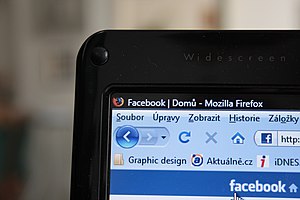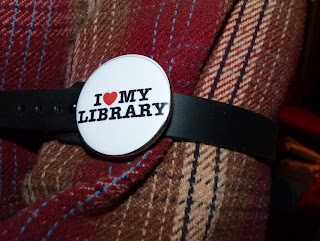PTSA Presentation
This morning Tara Taupier and I with assistance from the Tam District Technology Director, Joel Hames, and Redwood AP, David Sondheim, gave a presentation to the PTSA about cyber citizenship issues. The talk included discussions of student and parental responsibilities, privacy issues, general issues of Internet use and abuse, the development of a curriculum by the District to teach such topics in Social Issues and Computer Literacy courses.
I shared with the group the fact that this blog exists to give them and others in the community up to date on library happenings, and the existence of the Library's Twitter feed (@besschinlibrary)
Cybersafety Issues: How Parents Can Get Involved
Online safety and cyber-citizenship are two very important topics for parents and students. The Library provides the following information for parents from the
Center for Safe and Responsible Internet Use (http://www.cyberbully.org/). Nancy Willard, executive director of CSRIU, is a recognized authority on issues related to the safe and responsible use of the Internet.
Today’s teens are totally connected through the Internet. As long as their time spent using online is balanced with other important activities the Internet can be fun and beneficial. Parenting online is just like parenting in the Real World. When children are younger we keep them in fenced play yards. But as they grow, we have to make sure that they know how to independently make good choices. But they still need parents!
Research has shown that teens whose parents are actively and positively involved in their online activities engage in less risk-taking behavior. Delete the fear! These are steps you can take:
• Appreciate your child’s online activities. Show interest in your child’s online friends. Work in partnership to address any concerns.
• Make sure you have implemented appropriate security against malware, use a spam blocker, block pop-up ads, and use safe search features. Never allow peer-to-peer software.
• Encourage your teen to always use the protective features on social networking sites and instant messaging to control who can view information and communicate in these personal environments.
• Keep the computer in a public area until your child is older and demonstrates good choices. Pay attention to what your child is doing online. But balance your supervision with your child’s legitimate interests in personal privacy. Positive interactions will encourage your child to share.
• Never overreact if your child reports an online concern. Fear of overreaction and loss of access is leading many teens not to report.
• If your child engages in inappropriate or harmful actions online or using a cell phone, impose a consequence that will focus attention on why those actions caused or could cause harmful consequences. Require a remedy for any harm.
• Pay attention to “red flags” -- appearing emotionally upset during or after use, disturbed relationships, too much time online, excessively secretive behavior, and subtle comments about online concerns. Carefully try to engage your child in discussion.
• Encourage your child to help others directly or report to an adult if he or she witnesses someone being harmed or at risk online.
• Help your child learn to make good choices. “What you do online reflects on you.”
Watch out for these harmful online influences:
•
You Can’t See Me. The perception of invisibility makes detection and punishment less of a concern. --Encourage your child to make choices based on internalized values and understand their online actions can be traced.
•
I Can’t See You. The lack of tangible feedback interferes with the ability to recognize the harmful consequences to self or others. --Focus your child’s attention on harm to themselves or others.
•
Didn’t Think. Teen’s brains are not yet full developed, which results in an inability to effectively problem-solve, especially if they are emotionally upset. --Demonstrate and discuss strategies for effective problem-solving.
•
Who Am I? Exploring personal identity online can lead to inappropriate or unsafe personal disclosure. --Encourage your child to pay attention his or her online “image” and reputation. “What you post tells people who you are.”
•
Am I Hot? When teens explore sexuality and relationships online this can lead to sexy images, sexual discussions, and the fantasy of finding love. --Honestly discuss issues of maturing sexuality and how to safely and respectfully form, engage in, and end personal relationships.
•
If I Can Do It, It Must Be Okay. The easy ability to do something appears to create the permission to do so. --Tell your child: “Just because you can, doesn’t make it right.”
•
Everybody Does It. Teens follow others who make bad choices. --Tell your child: “Just because they do it, doesn’t make it right.”
•
How Far Can I Go? Teens test boundaries to find out about limits. --Focus on the reasons for limits ~ to avoid harm to self or others.
•
Doing What They Say. Teens may be manipulation by others. --Teach your child to recognize signs of attempted manipulation including overly friendly messages.
•
Looking for Love. Teens who face Real World personal challenges are at higher risk online. --If your child is at higher risk, pay close attention to their online activities and “friends.”
 Image via WikipediaA new book, Google Apps for Education: Building Knowledge in a Safe and Free Environment, co-written by San Francisco teacher librarian, Micah Melton, about Google apps for education is now available from Hi Willow Press. Micah's co-authors include David Loertscher and Roger Nevin and they wrote the entire book using various Google apps. As a matter of fact, Micah has never even seen Roger Nevin!
Image via WikipediaA new book, Google Apps for Education: Building Knowledge in a Safe and Free Environment, co-written by San Francisco teacher librarian, Micah Melton, about Google apps for education is now available from Hi Willow Press. Micah's co-authors include David Loertscher and Roger Nevin and they wrote the entire book using various Google apps. As a matter of fact, Micah has never even seen Roger Nevin!

















